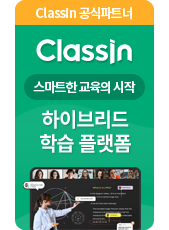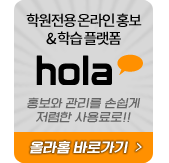[PRNewswire] 유네스코 MGIEP 보고서, 모든 사람이 개인화된 교육 받을 권리 선언
- 새로운 글로벌 연구, 정책 입안자들에게 교육 시스템 재평가 촉구
(파리 2022년 3월 23일 PRNewswire=연합뉴스) 유네스코 마하트마 간디 지속가능발전 및 평화교육센터(UNESCO Mahatma Gandhi Institute of Education for Peace and Sustainable Development, MGIEP)는 이달 22일에 발표한 '교육의 재구상(Reimagining Education)'이라는 새로운 보고서에서 정부, 교육 정책 입안자 및 고위 의사결정권자는 개인화된 교육이 모든 학습자의 권리이자 인권임을 인식해야 한다고 명시했다.
새로운 글로벌 국제 과학 및 증거 기반 교육 평가(International Science and Evidence Based Education Assessment, ISEE) 보고서는 학습에 대한 인지-정서적 접근 방식과 향후 과학과 증거에 의거한 교육 정책의 결정을 지향한다.
몬트리올에서 2019년부터 2년에 걸쳐 진행된 이 평가는 신경과학, 기술, 교육, 철학, 과학, 데이터와 증거, 지속가능성 등 다양한 분야의 과학자 및 전문가와의 글로벌 협의 과정을 통해 45개국에서 300명이 넘는 전문가들의 견해를 모았다.
코로나19 이후 교육을 재구상하다
이 보고서는 유엔 지속가능발전목표(SDGs) 달성의 기회를 위태롭게 한 코로나19 팬데믹의 여파로 전 세계가 씨름하는 가운데, 프랑스 파리의 유네스코 본부에서 발표됐다. 수십 년간 진보한 교육은 오늘날 갈등과 충돌로 인해 끊임없이 위협받고 있다. 보고서에 따르면, 초등학교 난민 아동의 3분의 1 이상(37%)이 학교에 다니지 않고 있으며, 24%만이 중등 교육을 받을 수 있는 것으로 나타났다. 난민 인구 중 고등 교육에 대한 접근성은 3%에 불과한 암울한 수준이다.
이 평가는 현재의 위기를 극복할 수 있는 더 탄력적이고 지속가능한 교육 시스템을 구축하기 위해 교육의 미래를 재구상하는 데 기여한다.
영국 청소년 기부 기금(Youth Endowment Fund) 의장이자 ISEE 평가 보고서 자문위원인 Kevan Collins 경은 "ISEE Assessment는 교육을 재구상하는 방법에 대한 작업을 위한 새로운 공헌"이라며 "우리가 알고 있는 것을 최대한 활용하고, 어린이를 위한 다양한 기회를 제공하기 위해, 우리는 다학제적 접근법을 채택했다"고 설명했다. 그는 "이러한 작업을 통해, 우리는 교육뿐만 아니라 번영하는 사회를 뒷받침하기 위해서는 계속 배우고자 하는 이들에게 미래가 달려있으며, 전뇌 중심 모델이 중요하다는 것을 알게 됐다"면서 "지구의 번영과 지속가능한 미래는 모든 아이에게 제공되는 교육의 질에 달려 있으며, 우리는 이 평가로부터 촉발된 논의를 이어가야 할 것"이라고 강조했다.
개인화된 교육은 인간의 권리다
이 보고서는 지속적인 발전을 위해서는 개인화된 교육이 모든 학습자의 인권이라는 사실을 각 정부가 인식할 것을 촉구하고, 교육에 대한 인지-정서적 전뇌 접근 방식을 지향하는 교육에 대한 투자를 늘릴 것을 요구한다.
ISEE Assessment 보고서의 공동 의장이자 유네스코 MGIEP 이사인 Anantha Duraiappah와 Vrije Universiteit Amsterdam의 Nienke van Atteveldt 교수는 공동 성명을 통해 "교사, 학부모 및 학생의 80% 이상이 교육의 성배라 할 수 있는 개인화된 교육을 원하는 것으로 나타났다"며 "개인화된 교육은 이제 디지털 교육학과 윤리적 인공지능의 지원으로 가능해졌다"고 설명했다. 또한, 그는 "우리는 각 학습자가 양질의 교육을 받고, 자신의 속도에 맞춰 일하며, 번영하는 삶을 영위할 잠재력을 극대화하기 위해 자신만의 기준을 가질 권리를 보장할 수 있게 됐다"면서 "전 세계 인구의 40%가 자신이 이해하는 언어로 교육을 받을 수 없는 문제 등을 해결하고, 미래를 위한 탄력적인 교육 시스템을 구축해야 할 것"이라고 강조했다.
또한, 이 보고서는 과학과 증거, 그리고 여러 학문에 걸친 대화로 미래의 교육 정책을 주도해야 한다고 주장한다.
정책 권고사항
보고서는 의사 결정권자가 학년 또는 장점 기반 평가에 초점을 맞추고, 서로를 기준으로 학습자를 평가하는 대신 개개인의 잠재력에 초점을 맞추고 개인별 학습 과정을 평가할 것을 강력하게 요구하고 있다.
또한, 보고서에서는 인지-정서적 학습에 초점을 맞춘 커리큘럼, 교수법, 연구 및 학습 평가를 재정비하기 위해서는 교육 기금을 재편하는 데 시급한 노력을 기울여야 한다고 강조한다.
이 보고서는 정책 입안자들이 교육 분야에서 다학제적이고 대규모의 개방적, 포괄적 연구 프로그램에 투자할 것을 촉구한다.
전 프랑스 교육부 장관 Najat Vallaud-Belkacem은 "이 평가에서 제시된 결과는 분명 미래 교육 시스템을 위한 정책 및 의사 결정을 위한 길을 열어 줄 것"이라며 "우리 세계는 지금 그 어느 때보다 더 지속가능하고 탄력적이며, 공정하고 공평한 미래에 대한 비전이 필요하다"라고 지적했다. 이어 그녀는 "ISEE 평가의 독자적인 연구 결과는 이러한 요구를 전달하고 미래 교육 정책에 대한 강력한 지침을 제공하는 것"이라고 덧붙였다.
웹사이트 https://mgiep.unesco.org/iseea-report-launch 를 통해 3월 22일(화요일) 오전 10시부터 오후 12시(CET)까지 파리 유네스코 본부에서 열리는 ISEE Assessment의 가상 론칭 행사에 참석할 수 있다. 해당 링크에는 3월 25일(금요일) 오전 10시부터 오후 12시(GST)까지 두바이 엑스포에서 진행되는 가상 원탁 토론의 참석 방법에 대한 세부 내용도 포함된다. 이 토론에는 전문가 패널들이 참석해 평가 결과에 대해 논의할 예정이다.
ISEE Assessment 전문은 웹사이트 https://mgiep.unesco.org/iseeaweb 에서 다운로드받을 수 있다.
출처: UNESCO MGIEP
Everyone has a right to personalised education, declares UNESCO MGIEP's report
-- New global study calls for policy-makers to re-evaluate education systems
PARIS, March 22, 2022 /PRNewswire/ -- Governments, education policymakers and senior decision makers need to recognize that personalised education is an entitlement and a human right for every learner, states the UNESCO Mahatma Gandhi Institute of Education for Peace and Sustainable Development (MGIEP) in its new report "Reimagining Education", released today.
The new global International Science and Evidence Based Education Assessment (ISEE) report points towards an education that employs a cognitive-emotional approach to learning, and for education policymaking to be guided by science and evidence in the future.
The Assessment, which commenced in 2019 in Montreal and has been two years in the making, brought together more than 300 experts from 45 countries informed by a global consultation process with scientists and specialists from diverse disciplines such as neuroscience, technology, education, philosophy, data and evidence, and sustainability.
Reimagining education in the aftermath of COVID-19
The report, released at the UNESCO Headquarters, Paris, France, comes as the world grapples with the aftermath of the COVID-19 pandemic that has jeopardized the chances of achieving the United Nations Sustainable Development Goals (SDGs). Decades of progress in education are also constantly threatened by conflicts, with the report finding that more than a third (37%) of primary school-aged refugee children are out of school and only 24% have access to secondary school education. Access to higher education is a dismal 3% among refugee populations.
The Assessment contributes to re-envisioning the future of education to build more resilient and sustainable education systems that can weather the current crisis.
Sir Kevan Collins, Chair of the Youth Endowment Fund, UK and Advisory Board Member of the ISEE Assessment Report commented, "The ISEE Assessment is a new contribution to our work on how we reimagine education. We adopted a multidisciplinary approach to bring together the very best of what we know, ensuring that we work across a range of opportunities for children. In this work, we learned that the future belongs to those who continue to learn and that a whole-brain-centric model is critical if you want to support not only education, but a flourishing society. A prosperous, sustainable future for our planet lies so much in the quality of education provided for all our children and we must continue the debate the Assessment has started."
Personalised education is a human right
The report asks governments to realise that personalised education for continued development is a human right for every learner and calls for increased investment in education, which must be directed to a cognitive-emotional whole brain-approach to education.
The two Co-Chairs of the ISEE Assessment Report, Anantha Duraiappah, Director, UNESCO MGIEP and Nienke van Atteveldt, Professor, Vrije Universiteit Amsterdam in a joint statement stated, "Over 80% of teachers, parents and students want exactly what personalised education - the holy grail of education - can offer. This is now possible with the support of digital pedagogy and ethical artificial intelligence. We can make sure that each learner gets the quality education they are entitled to, work at their own pace and be their own benchmark to maximize their potentiality for leading a flourishing life. We must address issues like the fact that 40% of the global population cannot access education in a language they understand and build a resilient education system for the future."
Furthermore, the report advocates for future education policy to be guided by science and evidence and multidisciplinary dialogue.
Policy recommendations
A critical need that the report highlights is for decision makers to introduce education policies that focus on one's potential and evaluate each learner's individual learning progress as opposed to focusing on grade or merit-based assessment and benchmarking learners against each other.
Furthermore, the report advocates for urgent efforts to be made in reorganizing education funding to rearrange curricula, pedagogies, research and learning assessment to focus on cognitive-emotional learning.
Looking ahead, the report calls on policymakers to invest in multidisciplinary, large scale, open and inclusive research programmes in education.
Madam Najat Vallaud-Belkacem, Former Minister of Education, France, said, "The findings presented in the Assessment will undoubtedly pave the way for policy and decision-making for future education systems. Now more than ever, our world needs visions for a future that is more sustainable, resilient, just, and fair. The unique findings of the ISEE Assessment deliver on this need and provide robust guidelines for future education policy."
To attend the virtual launch of the ISEE Assessment at UNESCO HQ in Paris, from 10am to 12pm CET on Tuesday 22nd March, please visit https://mgiep.unesco.org/iseea-report-launch. This link also includes details of how to attend a virtual roundtable discussion at Dubai Expo, from 10am to 12pm GST, on Friday 25th March, where a panel of experts will discuss the findings of the Assessment.
To download the ISEE Assessment in full, please visit https://mgiep.unesco.org/iseeaweb
Source: UNESCO MGIEP
[편집자 주] 본고는 자료 제공사에서 제공한 것으로, 연합뉴스는 내용에 대해 어떠한 편집도 하지 않았음을 밝혀 드립니다.
(끝)
출처 : PRNewswire 보도자료
- 새로운 글로벌 연구, 정책 입안자들에게 교육 시스템 재평가 촉구
(파리 2022년 3월 23일 PRNewswire=연합뉴스) 유네스코 마하트마 간디 지속가능발전 및 평화교육센터(UNESCO Mahatma Gandhi Institute of Education for Peace and Sustainable Development, MGIEP)는 이달 22일에 발표한 '교육의 재구상(Reimagining Education)'이라는 새로운 보고서에서 정부, 교육 정책 입안자 및 고위 의사결정권자는 개인화된 교육이 모든 학습자의 권리이자 인권임을 인식해야 한다고 명시했다.
새로운 글로벌 국제 과학 및 증거 기반 교육 평가(International Science and Evidence Based Education Assessment, ISEE) 보고서는 학습에 대한 인지-정서적 접근 방식과 향후 과학과 증거에 의거한 교육 정책의 결정을 지향한다.
몬트리올에서 2019년부터 2년에 걸쳐 진행된 이 평가는 신경과학, 기술, 교육, 철학, 과학, 데이터와 증거, 지속가능성 등 다양한 분야의 과학자 및 전문가와의 글로벌 협의 과정을 통해 45개국에서 300명이 넘는 전문가들의 견해를 모았다.
코로나19 이후 교육을 재구상하다
이 보고서는 유엔 지속가능발전목표(SDGs) 달성의 기회를 위태롭게 한 코로나19 팬데믹의 여파로 전 세계가 씨름하는 가운데, 프랑스 파리의 유네스코 본부에서 발표됐다. 수십 년간 진보한 교육은 오늘날 갈등과 충돌로 인해 끊임없이 위협받고 있다. 보고서에 따르면, 초등학교 난민 아동의 3분의 1 이상(37%)이 학교에 다니지 않고 있으며, 24%만이 중등 교육을 받을 수 있는 것으로 나타났다. 난민 인구 중 고등 교육에 대한 접근성은 3%에 불과한 암울한 수준이다.
이 평가는 현재의 위기를 극복할 수 있는 더 탄력적이고 지속가능한 교육 시스템을 구축하기 위해 교육의 미래를 재구상하는 데 기여한다.
영국 청소년 기부 기금(Youth Endowment Fund) 의장이자 ISEE 평가 보고서 자문위원인 Kevan Collins 경은 "ISEE Assessment는 교육을 재구상하는 방법에 대한 작업을 위한 새로운 공헌"이라며 "우리가 알고 있는 것을 최대한 활용하고, 어린이를 위한 다양한 기회를 제공하기 위해, 우리는 다학제적 접근법을 채택했다"고 설명했다. 그는 "이러한 작업을 통해, 우리는 교육뿐만 아니라 번영하는 사회를 뒷받침하기 위해서는 계속 배우고자 하는 이들에게 미래가 달려있으며, 전뇌 중심 모델이 중요하다는 것을 알게 됐다"면서 "지구의 번영과 지속가능한 미래는 모든 아이에게 제공되는 교육의 질에 달려 있으며, 우리는 이 평가로부터 촉발된 논의를 이어가야 할 것"이라고 강조했다.
개인화된 교육은 인간의 권리다
이 보고서는 지속적인 발전을 위해서는 개인화된 교육이 모든 학습자의 인권이라는 사실을 각 정부가 인식할 것을 촉구하고, 교육에 대한 인지-정서적 전뇌 접근 방식을 지향하는 교육에 대한 투자를 늘릴 것을 요구한다.
ISEE Assessment 보고서의 공동 의장이자 유네스코 MGIEP 이사인 Anantha Duraiappah와 Vrije Universiteit Amsterdam의 Nienke van Atteveldt 교수는 공동 성명을 통해 "교사, 학부모 및 학생의 80% 이상이 교육의 성배라 할 수 있는 개인화된 교육을 원하는 것으로 나타났다"며 "개인화된 교육은 이제 디지털 교육학과 윤리적 인공지능의 지원으로 가능해졌다"고 설명했다. 또한, 그는 "우리는 각 학습자가 양질의 교육을 받고, 자신의 속도에 맞춰 일하며, 번영하는 삶을 영위할 잠재력을 극대화하기 위해 자신만의 기준을 가질 권리를 보장할 수 있게 됐다"면서 "전 세계 인구의 40%가 자신이 이해하는 언어로 교육을 받을 수 없는 문제 등을 해결하고, 미래를 위한 탄력적인 교육 시스템을 구축해야 할 것"이라고 강조했다.
또한, 이 보고서는 과학과 증거, 그리고 여러 학문에 걸친 대화로 미래의 교육 정책을 주도해야 한다고 주장한다.
정책 권고사항
보고서는 의사 결정권자가 학년 또는 장점 기반 평가에 초점을 맞추고, 서로를 기준으로 학습자를 평가하는 대신 개개인의 잠재력에 초점을 맞추고 개인별 학습 과정을 평가할 것을 강력하게 요구하고 있다.
또한, 보고서에서는 인지-정서적 학습에 초점을 맞춘 커리큘럼, 교수법, 연구 및 학습 평가를 재정비하기 위해서는 교육 기금을 재편하는 데 시급한 노력을 기울여야 한다고 강조한다.
이 보고서는 정책 입안자들이 교육 분야에서 다학제적이고 대규모의 개방적, 포괄적 연구 프로그램에 투자할 것을 촉구한다.
전 프랑스 교육부 장관 Najat Vallaud-Belkacem은 "이 평가에서 제시된 결과는 분명 미래 교육 시스템을 위한 정책 및 의사 결정을 위한 길을 열어 줄 것"이라며 "우리 세계는 지금 그 어느 때보다 더 지속가능하고 탄력적이며, 공정하고 공평한 미래에 대한 비전이 필요하다"라고 지적했다. 이어 그녀는 "ISEE 평가의 독자적인 연구 결과는 이러한 요구를 전달하고 미래 교육 정책에 대한 강력한 지침을 제공하는 것"이라고 덧붙였다.
웹사이트 https://mgiep.unesco.org/iseea-report-launch 를 통해 3월 22일(화요일) 오전 10시부터 오후 12시(CET)까지 파리 유네스코 본부에서 열리는 ISEE Assessment의 가상 론칭 행사에 참석할 수 있다. 해당 링크에는 3월 25일(금요일) 오전 10시부터 오후 12시(GST)까지 두바이 엑스포에서 진행되는 가상 원탁 토론의 참석 방법에 대한 세부 내용도 포함된다. 이 토론에는 전문가 패널들이 참석해 평가 결과에 대해 논의할 예정이다.
ISEE Assessment 전문은 웹사이트 https://mgiep.unesco.org/iseeaweb 에서 다운로드받을 수 있다.
출처: UNESCO MGIEP
Everyone has a right to personalised education, declares UNESCO MGIEP's report
-- New global study calls for policy-makers to re-evaluate education systems
PARIS, March 22, 2022 /PRNewswire/ -- Governments, education policymakers and senior decision makers need to recognize that personalised education is an entitlement and a human right for every learner, states the UNESCO Mahatma Gandhi Institute of Education for Peace and Sustainable Development (MGIEP) in its new report "Reimagining Education", released today.
The new global International Science and Evidence Based Education Assessment (ISEE) report points towards an education that employs a cognitive-emotional approach to learning, and for education policymaking to be guided by science and evidence in the future.
The Assessment, which commenced in 2019 in Montreal and has been two years in the making, brought together more than 300 experts from 45 countries informed by a global consultation process with scientists and specialists from diverse disciplines such as neuroscience, technology, education, philosophy, data and evidence, and sustainability.
Reimagining education in the aftermath of COVID-19
The report, released at the UNESCO Headquarters, Paris, France, comes as the world grapples with the aftermath of the COVID-19 pandemic that has jeopardized the chances of achieving the United Nations Sustainable Development Goals (SDGs). Decades of progress in education are also constantly threatened by conflicts, with the report finding that more than a third (37%) of primary school-aged refugee children are out of school and only 24% have access to secondary school education. Access to higher education is a dismal 3% among refugee populations.
The Assessment contributes to re-envisioning the future of education to build more resilient and sustainable education systems that can weather the current crisis.
Sir Kevan Collins, Chair of the Youth Endowment Fund, UK and Advisory Board Member of the ISEE Assessment Report commented, "The ISEE Assessment is a new contribution to our work on how we reimagine education. We adopted a multidisciplinary approach to bring together the very best of what we know, ensuring that we work across a range of opportunities for children. In this work, we learned that the future belongs to those who continue to learn and that a whole-brain-centric model is critical if you want to support not only education, but a flourishing society. A prosperous, sustainable future for our planet lies so much in the quality of education provided for all our children and we must continue the debate the Assessment has started."
Personalised education is a human right
The report asks governments to realise that personalised education for continued development is a human right for every learner and calls for increased investment in education, which must be directed to a cognitive-emotional whole brain-approach to education.
The two Co-Chairs of the ISEE Assessment Report, Anantha Duraiappah, Director, UNESCO MGIEP and Nienke van Atteveldt, Professor, Vrije Universiteit Amsterdam in a joint statement stated, "Over 80% of teachers, parents and students want exactly what personalised education - the holy grail of education - can offer. This is now possible with the support of digital pedagogy and ethical artificial intelligence. We can make sure that each learner gets the quality education they are entitled to, work at their own pace and be their own benchmark to maximize their potentiality for leading a flourishing life. We must address issues like the fact that 40% of the global population cannot access education in a language they understand and build a resilient education system for the future."
Furthermore, the report advocates for future education policy to be guided by science and evidence and multidisciplinary dialogue.
Policy recommendations
A critical need that the report highlights is for decision makers to introduce education policies that focus on one's potential and evaluate each learner's individual learning progress as opposed to focusing on grade or merit-based assessment and benchmarking learners against each other.
Furthermore, the report advocates for urgent efforts to be made in reorganizing education funding to rearrange curricula, pedagogies, research and learning assessment to focus on cognitive-emotional learning.
Looking ahead, the report calls on policymakers to invest in multidisciplinary, large scale, open and inclusive research programmes in education.
Madam Najat Vallaud-Belkacem, Former Minister of Education, France, said, "The findings presented in the Assessment will undoubtedly pave the way for policy and decision-making for future education systems. Now more than ever, our world needs visions for a future that is more sustainable, resilient, just, and fair. The unique findings of the ISEE Assessment deliver on this need and provide robust guidelines for future education policy."
To attend the virtual launch of the ISEE Assessment at UNESCO HQ in Paris, from 10am to 12pm CET on Tuesday 22nd March, please visit https://mgiep.unesco.org/iseea-report-launch. This link also includes details of how to attend a virtual roundtable discussion at Dubai Expo, from 10am to 12pm GST, on Friday 25th March, where a panel of experts will discuss the findings of the Assessment.
To download the ISEE Assessment in full, please visit https://mgiep.unesco.org/iseeaweb
Source: UNESCO MGIEP
[편집자 주] 본고는 자료 제공사에서 제공한 것으로, 연합뉴스는 내용에 대해 어떠한 편집도 하지 않았음을 밝혀 드립니다.
(끝)
출처 : PRNewswire 보도자료










